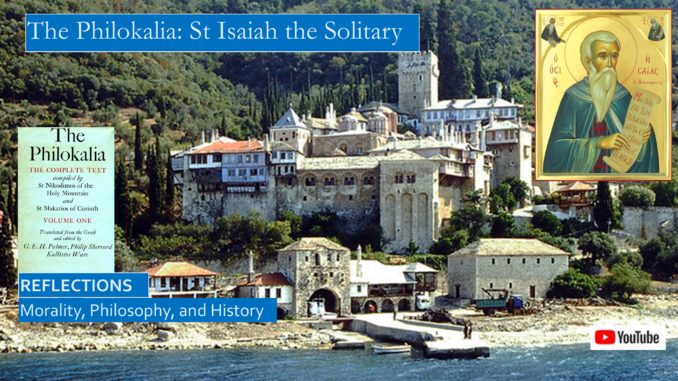
The challenge in the writings of the Church Fathers in the Philokalia is how to apply advice given to monks living the monastic life to our life in the world. All Christians are called to a monastic vocation, a vocation of selfless service as parents and spouses and workers and managers.
St Isaiah the Solitary “On Guarding the Intellect” gives us this advice, “If you find yourself hating your fellow man and resist the hatred, and you see that it grows weak and withdraws, do not rejoice in your heart; for this withdrawal is trick of the evil spirits. They are preparing a second attack worse than the first; they have left behind their troops behind the city and ordered them to remain there. If you go out to attack them, they will flee before you in weakness.”(2)
YouTube video: https://youtu.be/UKDs9RgZmew
How do we fight these evil spirits, the relentless hatred these evil spirits egg on? Through prayer, through unceasing prayer, through constant prayer. “Let us stand firm in the fear of God, rigorously practicing the virtues and not giving our conscience cause to stumble.”(3)
How else do we fight these evil spirits? Indeed, fear of God is the beginning of wisdom, fear of God, respect for God and our fellow man, leads to Love of God and our fellow man. Be attentive, so nothing “separates you from the Love of God.” “When a man abandons his sins and returns to God, his repentance regenerates him and renews him entirely.”(22) “If our thought is full of devotion and Love of God, it rules over the passions.”(24)
When do we who live in the world have the easiest time hating someone, the hardest time loving someone, the most difficult time forgiving someone? When someone close to us lies and cheat on us and tries to destroy us, it is hard to forgive someone when everyday your life is so much more difficult because someone whom you once loved turned on you, constantly belittling you, constantly beating you down.
When you are helping out with a divorce support group and someone observes that they just do not know how they can ever forgive this person who betrayed them and destroyed their lives and their hopes and their dreams, and the court battles are still raging, you just have to comfort them and tell them not to be hard on themselves, that it is very difficult to forgive until after the divorce has been settled and the war is over.
Reconciliation in these difficult relationships is nearly never once again holding hands and singing kumbaya in the sunset again, with all enmity forgotten by everyone, but rather reconciliation is a long-term process where perhaps you resent someone a little bit less tomorrow, where tomorrow whatever is left of the relationship is a little bit better than today.
Like the man Jesus asked the man who sought healing if he believed, and he shouted, “Lord, I do believe, Lord, please, help my unbelief!”, perhaps those whose lives were totally shredded by those whom they once loved can respond to Jesus call to forgive, “Lord, I do wish to forgive, please, Lord, help me forgive!” If they need to pray this prayer every day, does this mean there hardness of heart keeps them from forgiving, or does it mean they desperately seek, with the grace of God, the strength to forgive the unforgivable, perhaps every day for the rest of their lives?
St Isaiah teaches that we should ponder and apply Scripture to our own personal situations. “A monk should consider the purpose of each text in Scripture, to who whom it speaks and on what occasions.” His message to solitary monks can be powerfully applied to those who must daily wrestle with ravenous lion who wants to devour their souls in the jaws of hatefulness and unforgiveness. St Isaiah teaches, “the monk should persevere continually in the ascetic struggle and be on his guard against the provocations of the enemy. Like a pilot steering a boat through the waves, he should hold to his course, guided by grace.”(23) We should not be like the pilot who wrecks his ship on the rocks because he listens to the inattentive navigator, those friends of ours who wish to stoke the fires of our resentment.
St Isaiah teaches we need to attentive to what leads to “vainglory, wrath, or gluttony,”(24) that we should “pursue the love which quenches all bodily passions and which prevents anything contrary to nature from gaining control over the heart.”(19) Competent counselors advise those in divorce situations against the temptation to self-medicate with alcohol, shopping, or buying new cars they cannot afford, that now is not the time to date someone new, to wait a few years. We should always be on guard that our possessions do not possess us, that we should not strive merely to live in extravagant luxury, that we are not selfish creatures chasing mere baubles.
Persistence in living a godly life, examining our consciences daily, is a recurring theme in the Philokalia. St Isaiah entreats us “not to leave our hearts unguarded as long as you are in your body.” Like the farmer who needs to tend his growing crops, “so a man should not leave his heart unguarded so long as he breathes breath through his nostrils.”(15) We must never let our guard down, “so long as the contest continues, a man is full of fear and trembling, wondering whether he will win today or be defeated, whether he will win tomorrow or be defeated.” After a long struggle we may earn a respite from the struggle with evil forces, from bitterness and anger and resentment.
However, we should have ringing in our ears the Lord’s warning to Cain that sin is ever crouching at our door, but that we can defeat the sin in our life. St Isaiah warns us, “Do not think that you have died to sin as long as you suffer violence, whether waking or sleeping, at the hands of your opponents. For while a man is still competing in the arena, he cannot be sure of victory.”(18) We need to guard our intellect, capture our thoughts, and pray without ceasing.[1]
[1] St Isaiah, “Guarding the Intellect,” in the Philokalia, The Complete Text, compiled by St Nikodimos of the Holy Mountain and St Makarios of Corinth, Volume 1, translated and edited by GEH Palmer, Phillip Sherrard, and Kallistos Ware (London: Faber and Faber, 1979), pp 22-30.

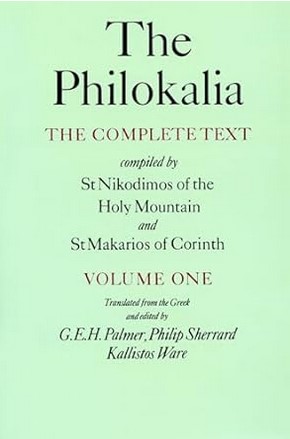
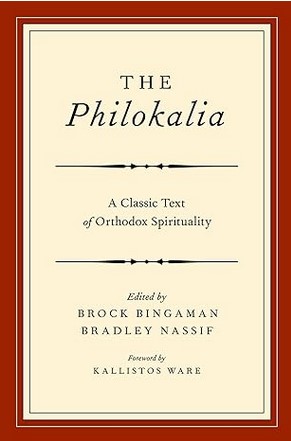
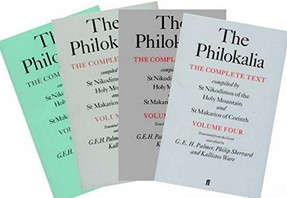
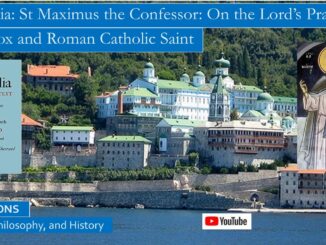
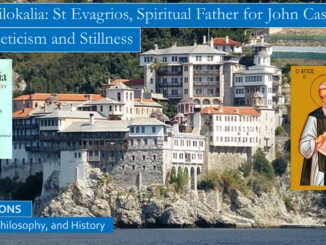
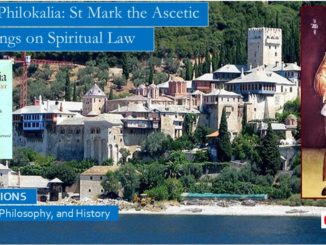
Be the first to comment